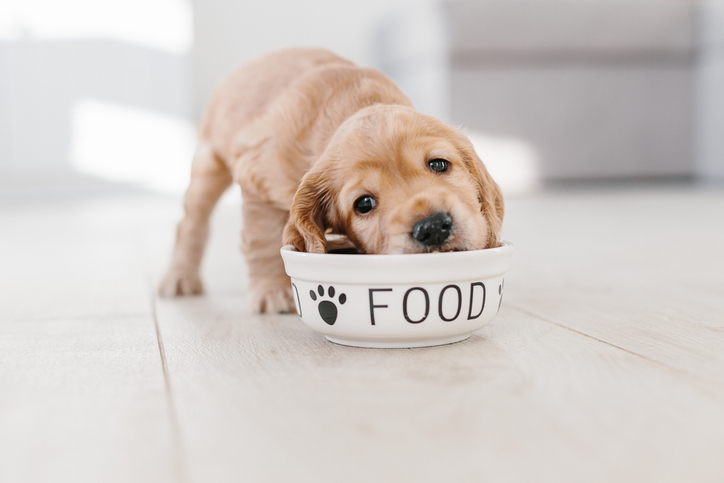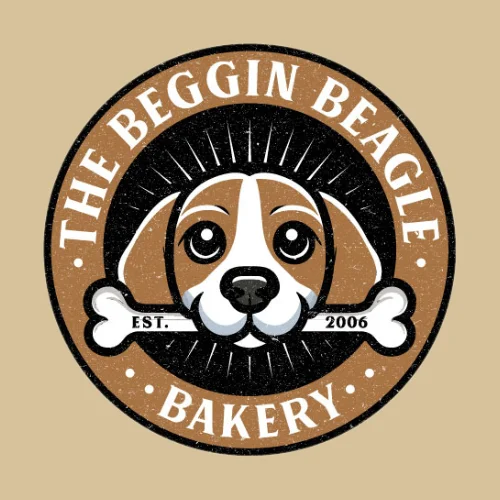How Many Times a Day Should Puppies Eat? A Complete Feeding Guide for Healthy Growth

Welcoming a new puppy into your home is a joyous occasion, filled with excitement and love. As a responsible pet parent, one of the most important aspects of your puppy’s care is their nutrition. Understanding how often your puppy should eat can help ensure they grow up healthy and happy. In this guide, we’ll walk you through the ideal feeding schedule for your furry friend from newborn to 12 months old.
Puppy Feeding Schedule:
0-4 Weeks: Newborn Nutrition
At this stage, puppies are typically nursing from their mother, which provides them with all the necessary nutrients. If the mother is not available, a high-quality puppy milk replacer can be used. Puppies should be fed every 2-4 hours, including during the night. This frequent feeding helps them gain weight and develop properly.
4-8 Weeks: Transition to Solid Food
Around 4 weeks, puppies can start transitioning to solid food. Begin with a high-quality puppy food that is specially formulated for their growing needs. At this stage, aim for 4 meals a day. This frequent feeding helps to support their rapid growth and high energy levels. Be sure to offer the food in small, manageable amounts to avoid overfeeding.
8-12 Weeks: Establishing Routine
By 8 weeks, your puppy is ready to continue transitioning to solid food. They should be eating 3-4 meals a day. This schedule helps balance their nutritional needs and keeps their energy levels stable. As your puppy continues to grow, monitor their weight and adjust portions as necessary to ensure they’re not overeating or under-eating.
3-6 Months: Reducing Meals
Around 3 months of age, you can start reducing the number of meals to 3 times a day. Puppies at this stage are growing rapidly and require more substantial meals, so each feeding should be well-balanced and include enough calories and nutrients. Keep an eye on their body condition and adjust portions as needed.
6-12 Months: Transition to Adult Feeding
By 6 months, you can transition your puppy to 2 meals a day. This feeding schedule is closer to what they will follow as an adult dog. Continue to provide high-quality puppy food to support their ongoing growth and development. As they approach their first birthday, you can start considering switching to adult dog food if recommended by your veterinarian.
Tips for Successful Puppy Feeding:
- Consistency is Key: Stick to a regular feeding schedule to help establish good eating habits. Consistent feeding times can also help with house training.
- Portion Control: Follow the feeding guidelines provided on your puppy food packaging. Avoid overfeeding or underfeeding by measuring out portions and adjusting as needed based on your puppy’s growth and activity level.
- Fresh Water: Always provide fresh water for your puppy in their bowl. Staying hydrated is crucial for their overall health and well-being.
- Monitor Weight and Growth: Regularly check your puppy’s weight and growth progress. If you notice any significant changes or concerns, consult your veterinarian for guidance.
- Consult Your Veterinarian: Every puppy is unique, so it’s always a good idea to consult with your veterinarian for personalized feeding recommendations and to address any specific health concerns.
Feeding your puppy the right way sets the foundation for a healthy and happy life. By following these guidelines and keeping an eye on your puppy’s growth and development, you can ensure they get the best start possible. Enjoy the journey of puppyhood and watch your little one grow into a strong and thriving adult dog! 🐾💕
Feel free to share your feeding experiences and tips in the comments below or on social media. We’d love to hear how your puppy is thriving!
Tags: #PuppyCare #PuppyFeeding #PetNutrition #HealthyPuppy #DogLovers #PuppyGrowth
